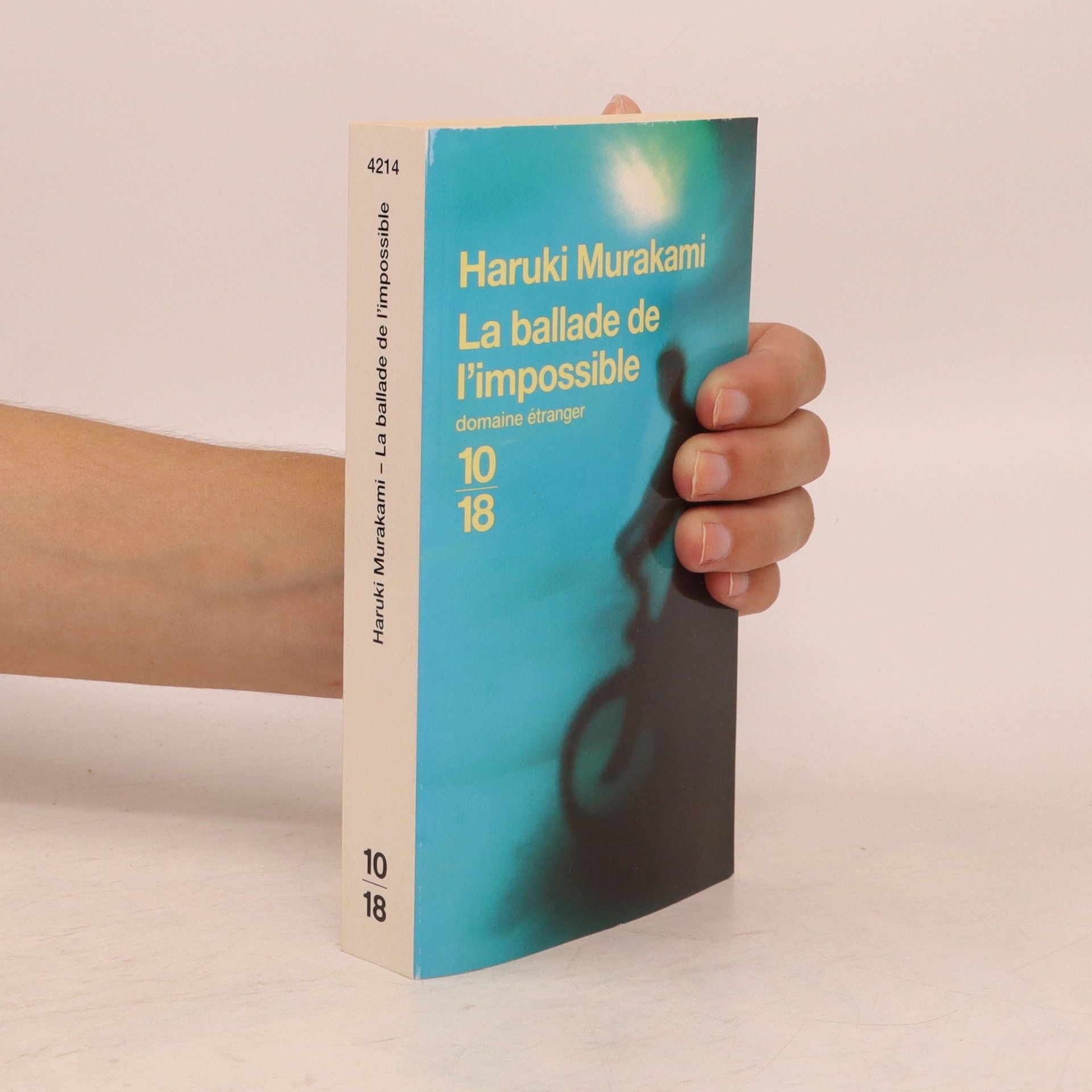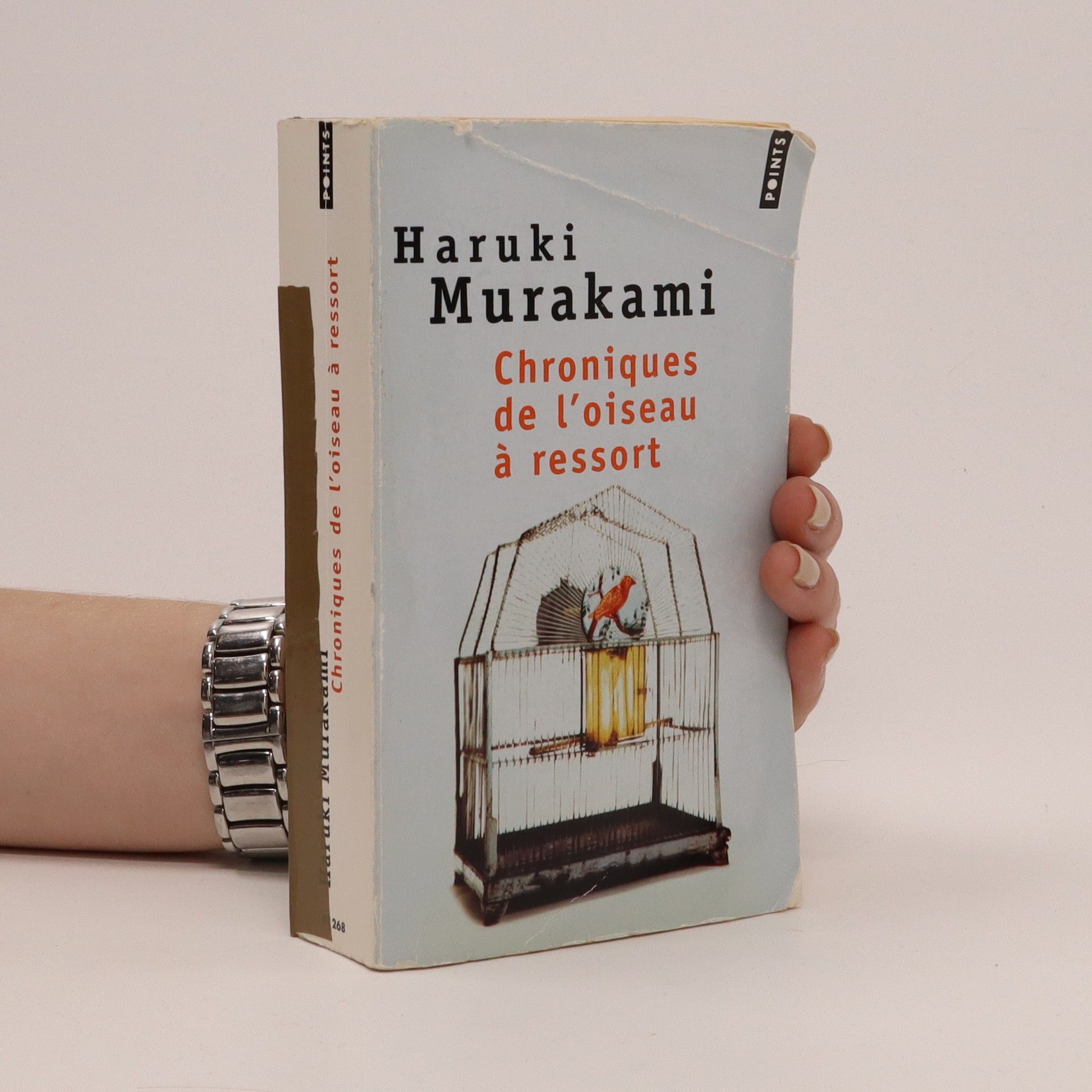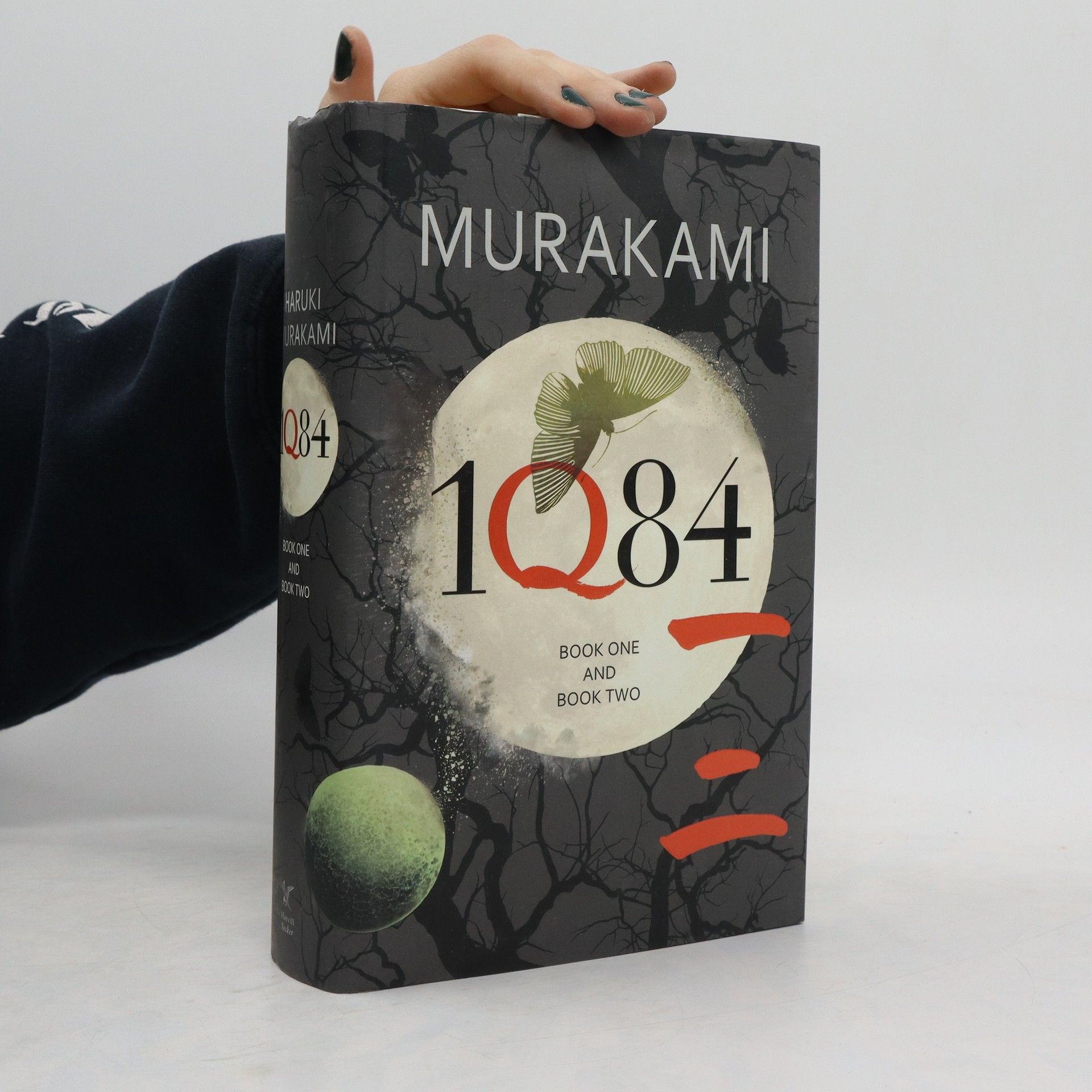1Q84: Book One and Book Two
- 623pages
- 22 heures de lecture
Vol. 2: book three translated from the Japanese by Philip Gabriel
Jay Rubin est un universitaire et traducteur américain, largement reconnu pour son rôle essentiel dans la traduction des œuvres du romancier japonais Haruki Murakami vers l'anglais. Ses contributions vont au-delà de la traduction, comprenant des guides perspicaces sur la langue japonaise et des analyses savantes du paysage littéraire de Murakami. Le travail de Rubin explore les nuances de la littérature et de la culture japonaises, offrant aux lecteurs une appréciation plus profonde de leurs complexités. Grâce à ses efforts dévoués, il comble les fossés linguistiques et culturels, rendant les œuvres littéraires profondes accessibles et compréhensibles.







Vol. 2: book three translated from the Japanese by Philip Gabriel
A major new anthology of great Japanese short stories introduced by Haruki Murakami.This fantastically varied and exciting collection celebrates the great Japanese short story collection, from its origins in the nineteenth century to the remarkable practitioners writing today. Curated by Jay Rubin (who has himself freshly translated several of the stories) and introduced by Haruki Murakami this is a book which will be a revelation to many of its readers. Short story writers already well-known to English-language readers are all included - Tanizaki, Akutagawa, Murakami, Mishima, Kawabata, Yoshimoto - but also many surprising new finds. From Tsushima Yuko's 'Flames' to Sawanishi Yuten's 'Filling Up with Sugar', from Hoshi Shin'ichi's 'Shoulder-Top Secretary' to Yoshimoto Banana's 'Bee Honey', The Penguin Book of Japanese Short Stories is filled with fear, charm, beauty and comedy.
Un beau jour, la vie de Toru Okada, jeune banlieusard sans emploi bascule pour de bon. Tout commence avec les coups de téléphone équivoques d'une mystérieuse inconnue. Puis le chat s'échappe ... Le rêve, l'aventure, la bifurcation soudaine d'une existence toute tracée : est-on prêt une fois dans sa vie à tenter l'abordage des frontières inédites?
Au cours d'un voyage en avion, le narrateur entend une chanson des Beatles: Norwegian Wood. Instantanément, il replonge dans le souvenir d'un amour vieux de dix-huit ans. Quand il était lycéen, son meilleur ami, Kizuki, s'est suicidé. Kizuki avait une amie, Naoko. Ils étaient amoureux. Un an après ce suicide, le narrateur retrouve Naoko. Elle est incertaine et angoissée, il l'aime ainsi. Une nuit, elle lui livre son secret, puis disparaît... Hommage aux amours enfuies, La Ballade de l'impossible est un magnifique roman aux résonances autobiographiques, d'une tendresse et d'une intensité érotique saisissantes.
Sous le double scintillement de 1084, le temps s'accélère et les vérités se confondent. La voix du détective Ushikawa s'invite, oscillant entre révélation et menace, sur la trace d'Aomamé et Tengo. D'un reflet à l'autre, dans la clairvoyance hypnotique de ce troisième volet, le passé s'apprête à livrer son chaos au seuil d'un nouveau rêve...
REVISED AND UPDATED WITH NEW MATERIAL ON 1Q84As a young man, Haruki Murakami played records and mixed drinks at his Tokyo Jazz club, Peter Cat, then wrote at the kitchen table until the sun came up. He loves music of all kinds - jazz, classical, folk, rock - and has more than six thousand records at home. And when he writes, his words have a music all their own, much of it learned from jazz. Jay Rubin, a self-confessed fan, has written a book for other fans who want to know more about this reclusive writer. He reveals the autobiographical elements in Murakami's fiction, and explains how he developed a distinctive new style in Japanese writing. In tracing Murakami's career, he uses interviews he conducted with the author between 1993 and 2001, and draws on insights and observations gathered from over ten years of collaborating with Murakami on translations of his works.
Included in this collection of stories is one in which a mirror appears out of nowhere and a night-watchman is unnerved as his reflection tries to take control of him, and another in which a couple's relationship is unbalanced after dining on exquisite crab while on holiday.
Un roman d'atmosphère, voguant sur plusieurs genres : drame psychologique, histoire fantastique et thriller s'entrelacent. A Tokyo, de nos jours, le temps d'une nuit. Une jeune fille qui lit, une autre qui dort. Elles sont soeurs. Un livre énigmatique et hypnotique dont chaque détail est un petit caillou qui, rétrospectivement, fait sens. Pour une nuit, Haruki Murakami nous entraîne dans un Tokyo sombre, onirique, hypnotique. Un éblouissant roman d'atmosphère à la poésie singulière, aux frontières de la réalité et du fantasme, ou chaque détail, rétrospectivement, fait sens. Dans un bar, Mari est plongée dans un livre. Elle boit du thé, fume cigarette sur cigarette. Un musicien surgit, qui la reconnaît. Au même moment, dans une chambre, Eri, la soeur de Mari, dort à poings fermés. Elle ne sait pas que quelqu'un l'observe. Autour des deux soeurs vont défiler des personnages insolites : une prostituée blessée, une gérante d'hôtel vengeresse, un informaticien désabusé, une femme de chambre en fuite. Des événements bizarres vont survenir : une télévision qui se met brusquement en marche, un miroir qui garde les reflets. À Tokyo, le temps d'une nuit, va se nouer un drame étrange...
'What is the life of a human being - a drop of dew, a flash of lightning? This is so sad, so sad.' Autobiographical stories from one of Japan's masters of modernist story-telling. Introducing Little Black Classics: 80 books for Penguin's 80th birthday. Little Black Classics celebrate the huge range and diversity of Penguin Classics, with books from around the world and across many centuries. They take us from a balloon ride over Victorian London to a garden of blossom in Japan, from Tierra del Fuego to 16th-century California and the Russian steppe. Here are stories lyrical and savage; poems epic and intimate; essays satirical and inspirational; and ideas that have shaped the lives of millions. Ryunosuke Akutagawa (1892-1927). Akutagawa's Rashomon and Seventeen Other Stories is also available in Penguin Classics.